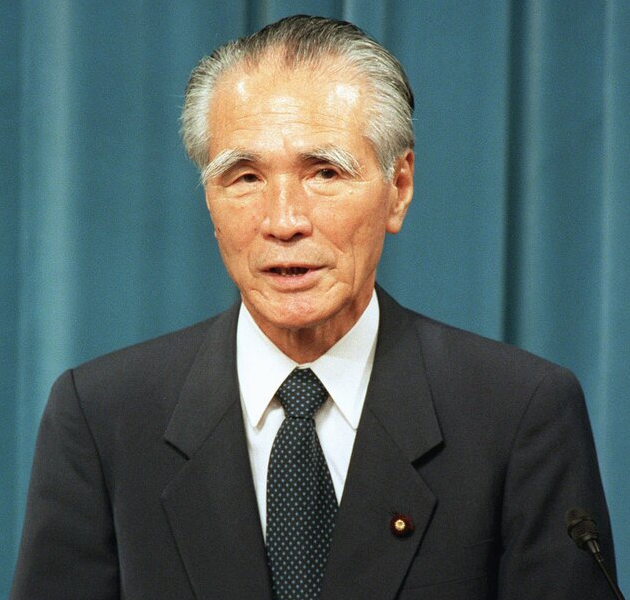
TOKYO – Tomiichi Murayama, who served as prime minister from June 1994 through January 1996, died Friday, a source said. He was 101.
Murayama became the first socialist prime minister in 47 years, leading an unprecedented alliance of long-time political rivals — his Social Democratic Party and the conservative Liberal Democratic Party plus the now-defunct small LDP splinter group New Party Sakigake.
While Murayama settled many outstanding issues during his 18 months in office, his party was accused of losing its identity in compromising with its coalition partners and reversing basic policies.
When he was prime minister, he issued a statement in 1995 on the 50th anniversary of the end of World War II in which he expressed Japan’s “deep remorse” and “heartfelt apology” for “the tremendous damage and suffering” inflicted by its colonial rule and aggression. The “Murayama statement” has been upheld by subsequent governments.
His government also passed legislation in 1994 to provide redress to surviving victims of the atomic bombings of Hiroshima and Nagasaki.
It set up the now-defunct semiofficial relief organization Asian Women’s Fund in 1995 to pay compensation to women who were forced into sexual servitude in Japanese military brothels during World War II.
A native of Oita Prefecture, southwestern Japan, Murayama also drew up a road map for the resolution of Minamata mercury-poisoning cases in Kumamoto and Niigata prefectures.
As SDP chief, Murayama acknowledged the legitimacy of the Self-Defense Forces, the Japan-U.S. security treaty, the Hinomaru flag and the Kimigayo anthem, all of which his party had previously resisted due to its pacifist stance.
He also faced a series of major crises in 1995, including the Great Hanshin Earthquake that left more than 6,000 people dead, the Tokyo subway sarin nerve gas attack by the AUM Shinrikyo cult.
The abduction and rape of a schoolgirl in Okinawa by three U.S. servicemen also triggered massive local protests against the U.S. military presence in Japan.
Murayama was first elected to the House of Representatives in 1972 after graduating from Meiji University and serving as a member of the Oita city and prefectural assemblies.
After serving a total of eight terms in the lower house, he retired from politics in June 2000 without seeking re-election.
BY: The Times Union – KYODO







